Your daily dose of Product Management Goodness
Want to know more?
We would love to hear your questions and suggestions for topics you would like to see covered in our future blog posts, so don't be shy and get in touch!

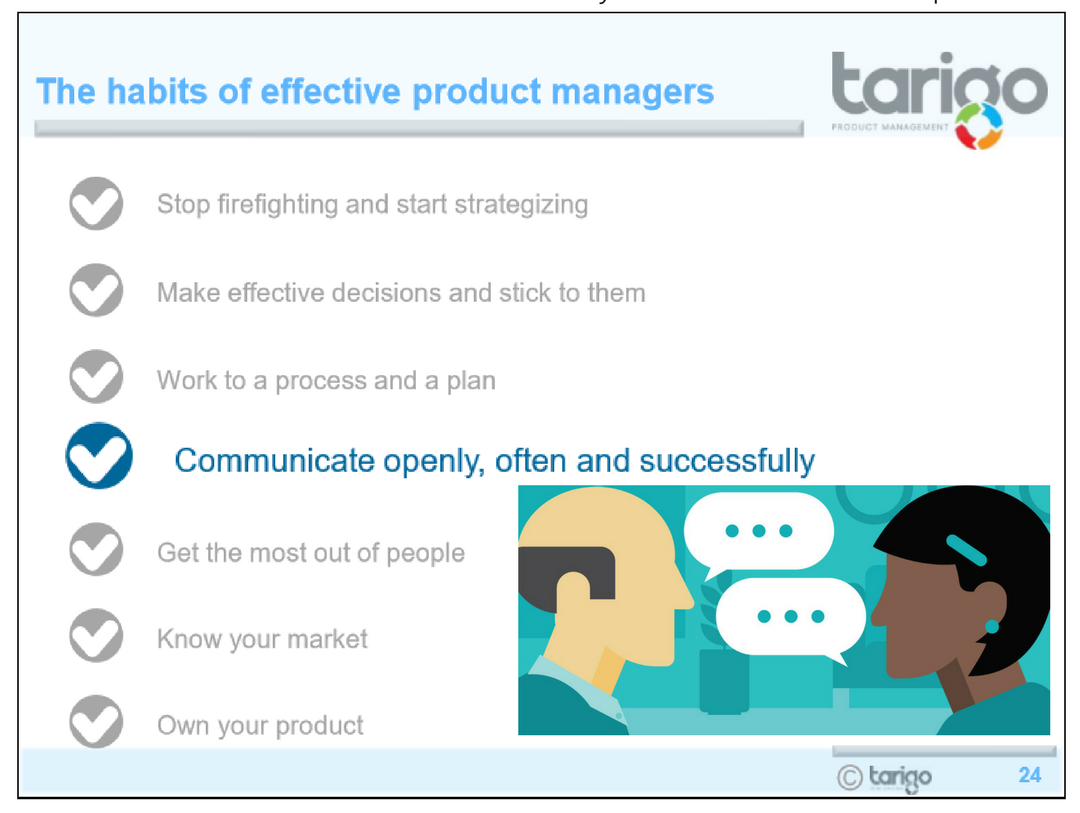
Habit 4
Communication
Clear communication is a critical product management skill - from presentation to value proposition building, a product manager knows this; If you don’t decide what to say about your product or service, someone else will. Loose control of communication and you loose control of the product.
read more
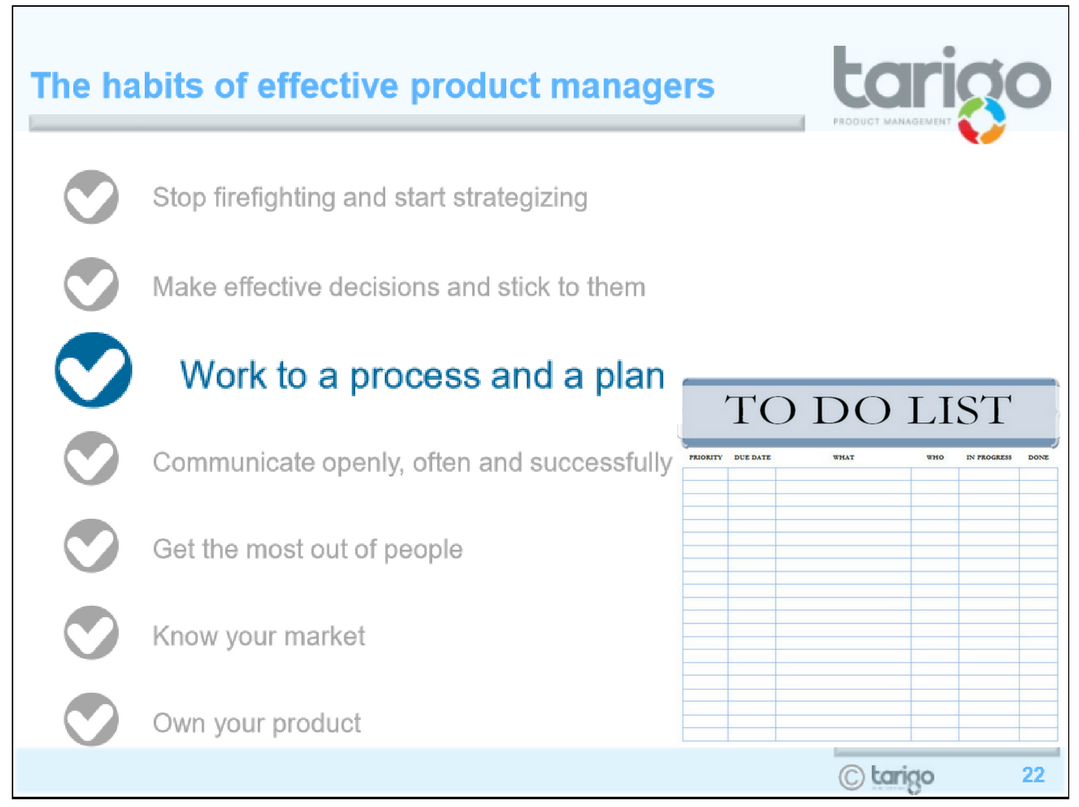
Habit 3
Work to a process and a plan
Without process all bets are off in terms of what we will deliver. A lack of process means who shouts loudest wins ! We risk delivering products that miss the market need.
Be a process advocate.
read more
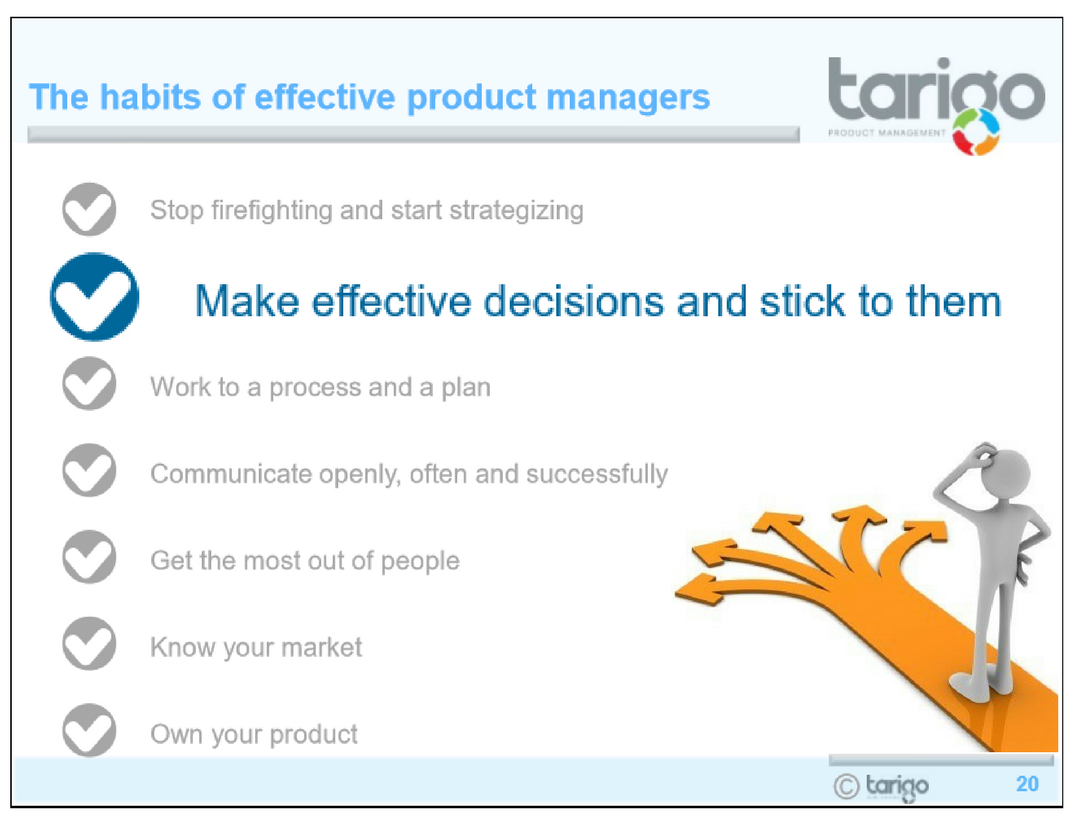
Habit 2
-Making Effective Decisions
Hitting the right date window is hard. Give yourself a fighting chance by limiting the communication of lower value features. That way you can descope and deliver on time without delivering below customer expectation.
read more
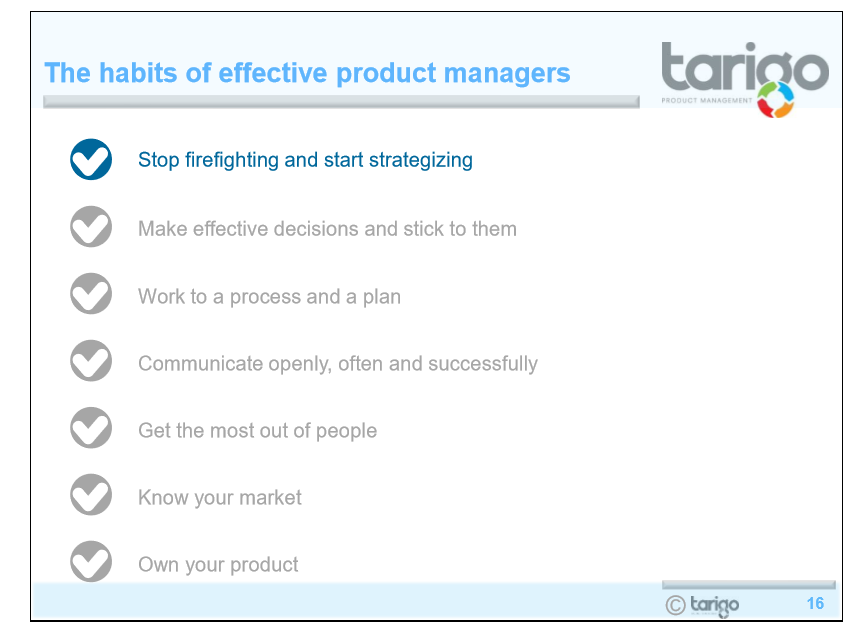
Habit 1
Stop Firefighting and start strategizing
Product Managers need to balance technical and strategic workload. The risk of just being technical? No long term thinking can mean no long term business. Think Blockbuster, HMV, Kodak. Don’t be the next
read more
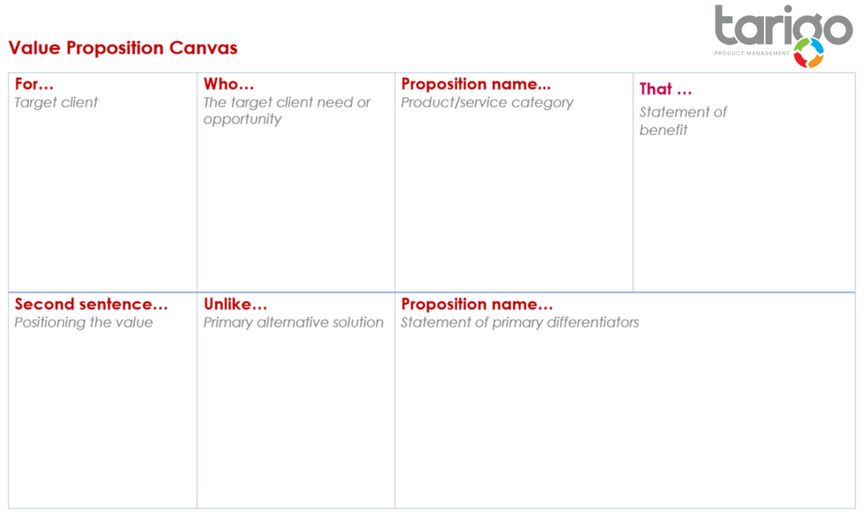
Value Proposition Canvas
Albert Einstein said that the definition of genius is taking the complex and making it simple.
This really resonates when some product managers try to describe their product - they struggle to take a complex product and make it understandable.
Can you make your product understandable? Try using this value proposition canvas to make your value statement resonate and be one step closer to a genius product manager!
read more

Bad News and How to Deal With it
We’ve seen examples recently in the press of companies trying deal with bad news and the damage it can cause to an organisation, brand or product. So how should a product manager deal with bad news about their product?
There are some basic rules to follow that minimise the risk:
Scale it. Work out the size of hole you’re in. Properly understand the issue – the scale, propensity, impacts, etc. You can’t dig your way out of a hole if it keeps getting bigger.
Share it. Be honest about the problem scale. Nothing undermines your credibility more than the constant drip of new information.
Plan it. Describe a credible high-level plan to deal with it.
Communicate it. Give regular updates and detail as you execute the plan.
We’d prefer no bad news, but how you handle bad news will significantly determine the impact
read more
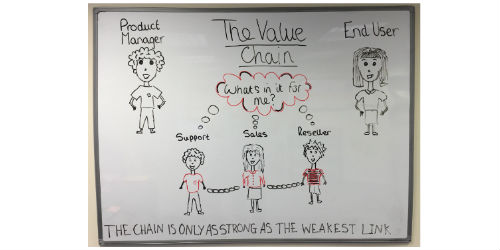
Who is your customer?
As product managers, we often think of our customer as the person or business that uses our product – the end user. But it’s often more complex than that. Reaching that end user often means working with other teams – sales, support, third party resellers, etc. The point is this; If those intermediary teams do not see the value in your product, you’ll never get to the end user. It’s best considered as a value chain – you’re at one end, the end user is at the other. The chain is only as strong as its weakest link. If the sales team don’t understand it or the third party reseller wont stock it then the end user won’t even see your product.
So who is your customer? Every one in the value chain. Try and address their needs and motivations, and the chain will be strong.
read more

Leading product management
What are the most important tasks for a leader of a product management team? I’d argue that top of the list is setting out a clear direction of travel. A product vision. Think about it; you could build the perfect team with a perfect set of processes and a perfect execution model, but without vision the team will be directionless. A bit like owning the worlds fastest race horse and then forgetting to point it towards the finishing line. At least show your team the finishing line you’re trying to get to!
read more
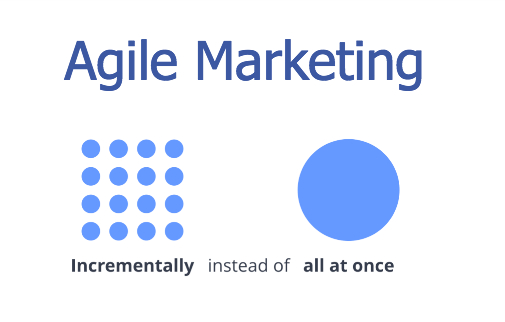
Is your price right?
We know that setting a price for a new product in a new market is based upon perceived or actual value, but what about price points when you’re taking upgrades into existing markets? Here’s a five step process to check if your price point makes sense:
Product Name:
1. Target - Write down the target price point
2. Expectation - How does the target price point compare with pricing over the last three years in the market?
3. Difference – What does your product or service offer as a point of difference? Are these differences tangible and valuable to your target market?
4. Brand – How does your brand impact perceived value? Don’t dismiss the power of the brand!
5. Costs – Does the price point deliver against financial goals
Evidence : Describe where you gathered your evidence
read more

What’s your point of difference?
How do you find a point of difference when your product doesn’t have one? This is a problem in regulated and reseller markets where lack of differentiation can lead to a price war - when no other points of difference exist, customers choose the cheapest. The trick is to look outside the product; think service, support, reputation, range, reach, brand. Truth is customers rarely buy on a single factor. The surrounding eco system really counts. I was reminded of this using Amazon OneClick; the major factor in my buying decision wasn’t price, it was ease of purchase.
The Product Management lesson? To be successful we need to think bigger than our product and look at the eco system that surrounds it. We use a tool called the value curve to address this.
read more

Setting Goals
It’s great to set your team or yourself a challenge; it can motivate, give focus and generate energy. But if the challenge is too big, unrealistic or just plain unachievable it will have the opposite effect. I was working with a team recently where this happened; team working well, manager sets impossible target, heads drop, team moral plummets. Think of it like this; If we took an average person off the street and set them a fitness challenge of completing a 5 kilometre run in the next 6 months then we might see them being nudged towards fitness. Take that same person and set them a fitness challenge of completing an ironman and their running shoes will never leave the house, but multiple small challenges might see an ironman performance eventually. The proof? The picture is of me completing ironman UK (2.4 mile swim, 112 mile bike ride, marathon run) . A challenge I was nudged towards over an eighteen month period.
The product management lesson?
Set multiple small challenges that nudge you and your team in the right direction.
read more

Opinions that matter
Everyone seems to have an opinion on the products we try to deliver; opinions on features, dates, design, pricing, etc... This can be frustrating. Worse, it can mean that nothing gets done as contrary opinions challenge your plan and slow things down. The key word here is opinion.
How should we deal with this? Evidence. Opinions lose power when evidence shows up.
read more

Protecting your ideas
In 1989 the anti-smoking campaigns were heating up, RJ Reynolds put $325 million into a new product: smokeless cigarettes.
They didn't work, people didn't buy them. After four months they were pulled from the market.
What tools do you use to make sure your Product ideas don't go up in smoke ?
read more
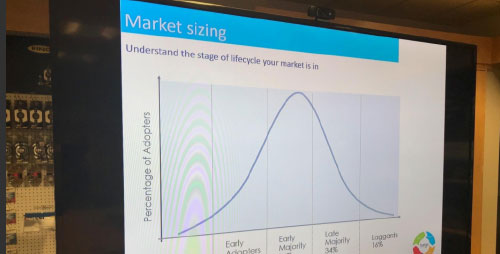
Market Sizing
A report out today suggests that 30% of us will “never be willing to buy an electric car”. This stat, produced to sway regulators in some way, should never shock a Product Manager. I’m teaching a market sizing masterclass today and this one slide tells us all we need to know. The lifecycle model suggests that when you’re in an innovator market (e.g. the electric car) laggards and late majority are in no way ready to buy and may well not relate to your product at all. So at least 30% will say ‘no’. Just like they would have done to questions such as ‘will you ever own a pc’ or even ‘will you ever own a car!’.
The Product Management lesson?
Be careful what you infer from snapshot stats.
read more

Dealing with obstacles
Navigating obstacles is a daily part of Product Management – dealing with product issues, pressures from other teams, workload, worrying about product performance…
Some Product Managers become so overwhelmed that they can’t see anything but obstacles. Their performance suffers, their product suffers, they suffer! Here’s a tip from the world of cycling; instead of looking at the obstacles, look beyond them at where you want to go. Look through the trees and around the rocks. By focusing on where you want to go instead of what you want to miss, the obstacles shrink and that good path becomes clear.
read more

Are your team ready for the year ahead?
There are many skills that make up the complete product manager; market research, requirements definition, launch planning and retiring to name just a few. In fact, the skillset is so broad that finding all those skills in one person is unlikely and training the team across the full skillset is expensive and time consuming. This paper helps to guide you on how best to get your team in great shape for the year ahead.
read more
Check out the Archive